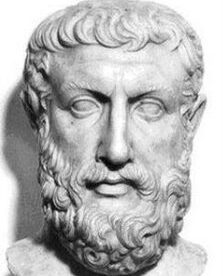
St. Jerome in His Study by Domenico Ghirlandaio
Available from Amazon and from the publisher, Harvard University Press
Book Length: 528 pages
Among the illustrious Fathers of the Church, it was St. Jerome who gave the New Israel the venerable Vulgate translation of the Holy Bible. So guided was he in this arduous task by the Holy Ghost that over a thousand years after his departure from this world, Holy Mother Church officially anathematized anyone who dared to reject his translation at the Council of Trent.1 Surely this is his greatest achievement, and let none take it from him. Outshone, yet not cast in the darkness by this accomplishment, are the many letters St. Jerome authored during the course of his life, most of which survive to our time. This Select Letters edition I am reviewing reproduces only eighteen of these—however, the extensive variety of the rich guidance that lies within them is sure to satisfy even the most eager of Catholic readers.
A problem of his own time and ours is that of the “worldly philosopher”, as St. Jerome terms such persons. These are men who claim to love wisdom, yet often in reality love only themselves. Our age is more perverse than that of St. Jerome’s, and even of the pagan Rome which preceded him; most who call themselves “philosophers” today do not even put up a pretense of helping their students live a life of virtue, whereas the philosophers of antiquity seemed ever bent on discovering virtue and living it. There are, however, some today who seek to revive the teachings of those philosophers, such as Seneca and Cicero, under the guise of “self-help”. No matter how excellent the teachings of the ancients are,2 they could not, and did not, blot out our sins nor offer us eternal life. Though such authors are by no means forbidden to a Catholic, and indeed one can learn many good things from them, they can never replace the Gospel and the writings of the saints. Their teachings contained uncertainty and even outright error, because they were the teachings of fallen men; in Christ’s teaching, there is the total purity of faith, hope, and charity, because He is the Word made flesh. St. Jerome gave the proper rebuttal to those who attempt to replace Jesus Christ with Marcus Aurelius:3
Worldly philosophers are wont to drive out an old passion by a new one, as you drive out an old nail by hammering in another…They cure fault by fault and sin by sin: we must overcome vice by love of virtue.
(Letter CXXV 421)
By self-denial in imitation of Christ are we to love virtue. To love virtue, we must love God, the Author of all that is good. St. John tells us, “Let us love God, because God first hath loved us” (1 John 4:19). It was God who created mankind out of His Love, His everlasting desire to share in some capacity the communion of His Triune nature with men, creatures whom He made in His own image and likeness. After the Fall cast us away from His Love and disfigured us, it was the God-Man, Jesus Christ, who has redeemed us out of this same Love and has made it possible for us to dwell with Him in Paradise. Thus with virtue and love seen from its origin, God Almighty, the motivation to overcome vice becomes clear.
It is precisely this battle of virtue against vice, the spiritual warfare, which St. Jerome so often touches on in this series of letters. Observe for instance, one of his many sublime words of advice on the subject of how one ought to fight sins of impurity: “Spare nothing, provided that you spare your soul” (Letter CXXV 409). Spare nothing, that is, turn over every bad and evil habit that leads you to commit such sins, and be not satisfied until your soul passes from this life to the next in God’s grace. Regarding the virtue of humility, in another part of the text he touches on the need for internal acts rather than external acts to achieve real progress: “It is a greater thing to change one’s disposition than to change one’s dress. We part with arrogance less easily than with gold and jewels” (Letter LXXVII 311). Such magnificent sayings could easily be applied to the spiritual life in general, and thus make for a fruitful source of meditation.
St. Jerome therefore makes for a sage teacher of the spiritual life, but he also makes for a sage teacher of the Latin language. This edition laudably provides the Latin text to the included letters side-by-side with the English translation—one page with the Latin, the other with the English; hence the rather long length for what otherwise would be a much shorter book. Because he was a master of his own language, students of Latin will be delighted to find both rhetorical and theological beauty contained in these pages. It is therefore recommended to them, and in like manner to all Catholics.
To help my reader further grasp the truly profound beauty of this saint’s words, I will end this review with the words he wrote to his friend Heliodorus:
When the Lord comes to give judgment the universe with utter a terrible groan; tribes of men will beat their breasts; kings once most mighty will shiver with naked flanks; Jupiter with all his offspring will be then shown amid real fires; Plato with his disciples will be revealed as but a fool; Aristotle’s arguments will not help him. Then you the poor rustic will exult, and say with a smile: ‘Behold my crucified God, behold the judge. This is he who once was wrapped in swaddling clothes and uttered baby cries in a manger. This is the son of a working man and woman who served for wages. This is he, who, carried in his mother’s arms, fled to Egypt, a God from a man. This is he who was clad in a scarlet robe and crowned with thorns. This is he who was called a magician, a man with a devil, a Samaritan. Behold the hands, ye Jews, that you nailed to the cross. Behold the side, ye Romans, that you pierced. See whether this is the same body that you said that the disciples carried off secretly into the night.’
O my brother, that it be may be yours to say these words and to be present on that day, what labour now can seem hard?
(Letter XIV 51-53)
- “…the Council of Trent decreed that ‘in public lectures, disputations, preaching, and exposition,’ the Vulgate is the ‘authentic’ version; and this is the existing custom of the Church.”
– Pope Leo XIII, Providentissimus Deus. (November 18, 1893).
- As any reader of this book will discover for themselves, St. Jerome himself quoted from great Classical authors such as Virgil and Persius without scruple, but always with an end to illustrate a deeper Christian moral.
-
All quotations of this text are provided from:
St. Jerome. Jerome: Select Letters. Translated by F. A. Wright. Harvard University Press. 1933.
